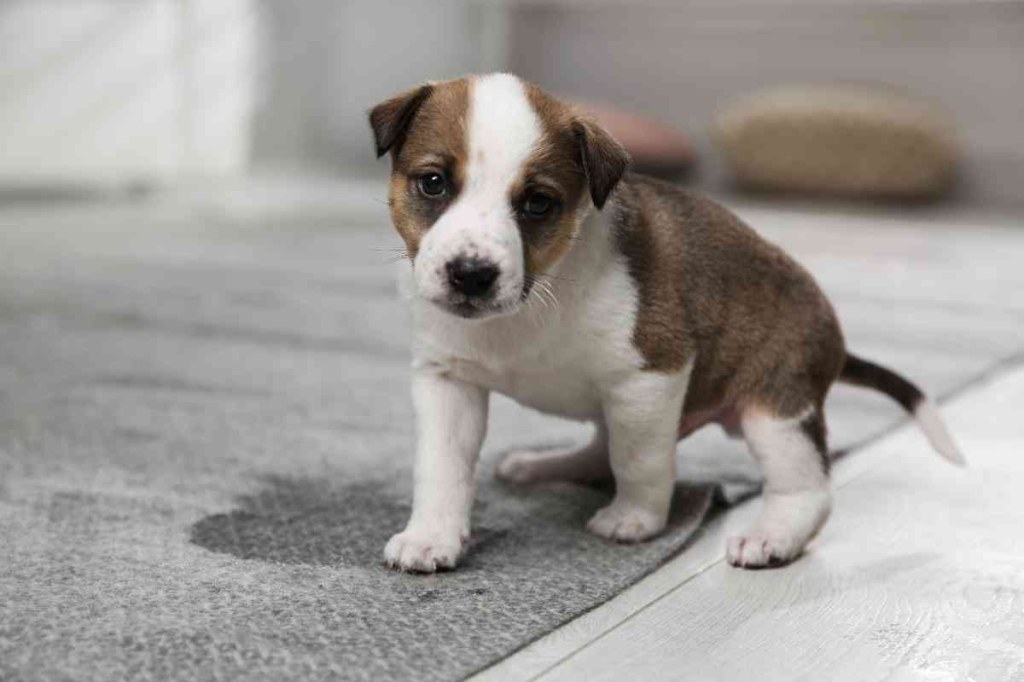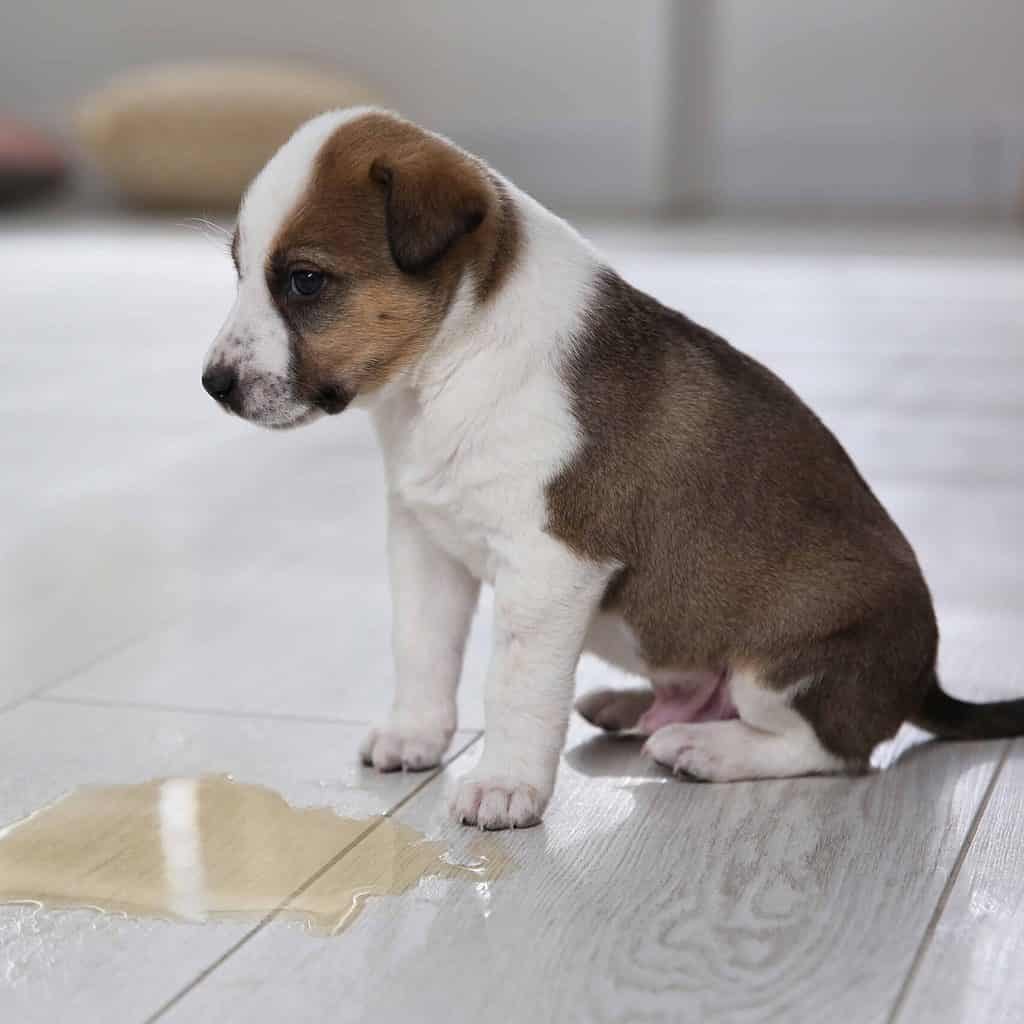Do Puppies Regress In Potty Training? Find Effective Tips To Keep Your Puppy’s Training On Track!
Do Puppies Regress in Potty Training?
Introduction
Hello, Dog Lover! Are you frustrated because your adorable puppy seems to be regressing in their potty training? Don’t worry, you’re not alone. Many puppy owners face this challenge, and in this article, we will explore the reasons behind this regression and provide effective solutions to help you overcome it. So, let’s dive into the world of potty training!
2 Picture Gallery: Do Puppies Regress In Potty Training? Find Effective Tips To Keep Your Puppy’s Training On Track!


Overview
Potty training is an essential part of raising a puppy. It is the process of teaching them to eliminate waste in appropriate areas, such as outdoors or in a designated spot indoors. While puppies usually make progress in their training, it is not uncommon for them to experience regression at some point. This regression can be frustrating for puppy owners, but with patience and understanding, it can be addressed effectively.
What Causes Regression in Potty Training?

Image Source: goldendoodleadvice.com
🔍 Puppies can regress in their potty training due to various reasons:
1. Change in Routine: Puppies thrive on consistency, and any changes in their routine can disrupt their potty training progress.

Image Source: dogsbestlife.com
2. Stress or Anxiety: Just like humans, puppies can experience stress or anxiety, which can impact their ability to follow their potty training routine.
3. Medical Issues: Certain medical conditions or infections can cause puppies to have accidents, leading to regression in their potty training.
4. Lack of Reinforcement: Inconsistent reinforcement of desired behavior can confuse puppies and result in regression.
5. Environmental Factors: Changes in the living environment, such as moving to a new house or introducing new pets, can disrupt a puppy’s potty training routine.
6. Age and Developmental Milestones: Puppies go through different developmental stages, and some may experience temporary regression as they reach certain milestones.
Who Is Affected by Regression in Potty Training?
🔍 Both puppies and their owners are affected by regression in potty training. Puppies may feel frustrated or confused when they face setbacks in their training, while owners may become disheartened or stressed by the increased accidents and lack of progress. It is important for both parties to remain patient and work together to overcome this stage.
When Does Regression in Potty Training Occur?
🔍 Regression in potty training can occur at any stage of the training process. Some puppies may regress after making initial progress, while others may experience setbacks during specific developmental stages. It is crucial to understand that regression is a normal part of the learning process, and with consistent effort, it can be overcome.
Where Does Regression in Potty Training Happen?
🔍 Regression in potty training can happen anywhere the puppy typically eliminates waste. Whether it’s indoors on training pads, in a designated spot in the yard, or even inside the house, accidents can occur during regression. However, with proper guidance and training, puppies can be redirected to appropriate elimination areas.
Why Do Puppies Regress in Potty Training?
🔍 Puppies may regress in their potty training due to a combination of factors, including:
1. Inconsistent Training: If the puppy receives inconsistent signals or mixed messages during training, it can lead to confusion and regression.
2. Lack of Reinforcement: If the puppy’s desired behavior is not consistently reinforced, they may not associate it with positive outcomes, leading to regression.
3. Stress or Anxiety: Puppies can experience stress or anxiety due to changes in their environment or routine, causing regression in their potty training.
4. Medical Issues: Certain medical conditions or infections can cause puppies to have accidents, resulting in regression.
5. Developmental Milestones: As puppies go through different developmental stages, their focus and ability to follow routines may fluctuate, leading to regression in potty training.
How Can You Address Regression in Potty Training?
🔍 To address regression in potty training, consider the following strategies:
1. Reevaluate the Routine: Ensure that the puppy’s routine is consistent and predictable, providing them with ample opportunities for successful elimination.
2. Reinforce Positive Behavior: Consistently reward the puppy for appropriate elimination habits, reinforcing the desired behavior.
3. Minimize Stress Factors: Identify and minimize any stress factors in the puppy’s environment, creating a calm and supportive atmosphere for potty training.
4. Consistency is Key: Ensure that all family members and caregivers follow the same potty training approach, providing a consistent learning experience for the puppy.
5. Patience and Persistence: Understand that regression is a temporary setback and remain patient and persistent in your training efforts.
Pros and Cons of Potty Training Regression
🔍 It’s essential to understand the pros and cons of potty training regression:
1. Pros:
– Learning Opportunity: Regression provides an opportunity to reinforce training techniques and strengthen the bond between the puppy and owner.
– Understanding the Puppy: Regression can indicate underlying issues, allowing owners to address them promptly and provide necessary support.
– Building Resilience: Overcoming setbacks in potty training can help develop resilience in both the puppy and the owner.
2. Cons:
– Frustration and Stress: The increased accidents and lack of progress during regression can be frustrating and stressful for both the puppy and owner.
– Time and Effort: Addressing regression requires additional time and effort to reestablish consistent potty training habits.
Frequently Asked Questions (FAQs)
1. Q: How long does potty training regression typically last?
A: The duration of potty training regression varies for each puppy, but it usually lasts for a few weeks to a couple of months. Consistency and patience are key during this stage.
2. Q: Should I punish my puppy for accidents during regression?
A: No, punishment is not recommended during potty training regression. Positive reinforcement and redirection are more effective in teaching the desired behavior.
3. Q: Can a puppy’s regression in potty training be a sign of a medical issue?
A: Yes, regression can be a sign of an underlying medical issue. If the regression persists or is accompanied by other symptoms, it is best to consult a veterinarian.
4. Q: Is it normal for a puppy to have occasional accidents even after successful potty training?
A: Yes, occasional accidents can happen even after successful potty training. However, consistent training and reinforcement can minimize the frequency of accidents.
5. Q: Can I hire a professional trainer to help with potty training regression?
A: Yes, hiring a professional trainer can be beneficial in addressing potty training regression. They can provide guidance and tailored solutions to overcome the challenges.
Conclusion
In conclusion, regression in potty training is a common challenge faced by puppy owners, but it is not insurmountable. By understanding the causes and implementing effective strategies, you can help your puppy overcome regression and establish consistent potty training habits. Remember to be patient, consistent, and provide positive reinforcement throughout the process. With time and effort, you and your puppy will conquer the potty training journey together!
Final Remarks
Disclaimer: The information provided in this article is for educational purposes only and should not replace professional advice. If you have concerns about your puppy’s potty training or any other aspect of their health, consult a qualified veterinarian or professional dog trainer for guidance tailored to your specific situation.
This post topic: Puppies



